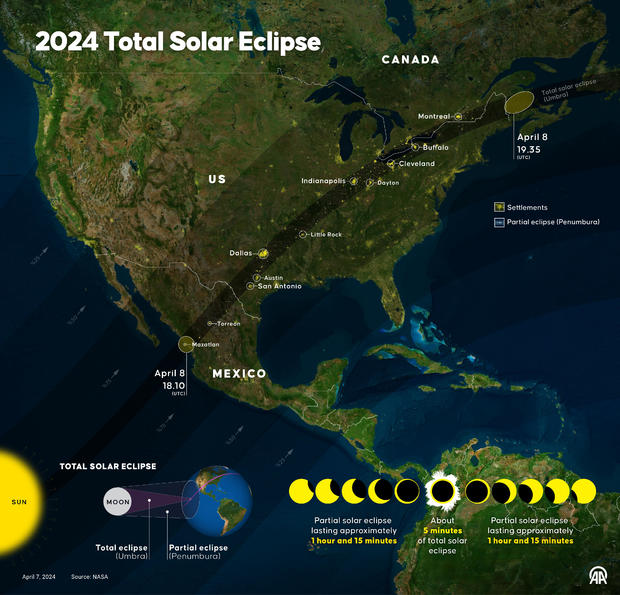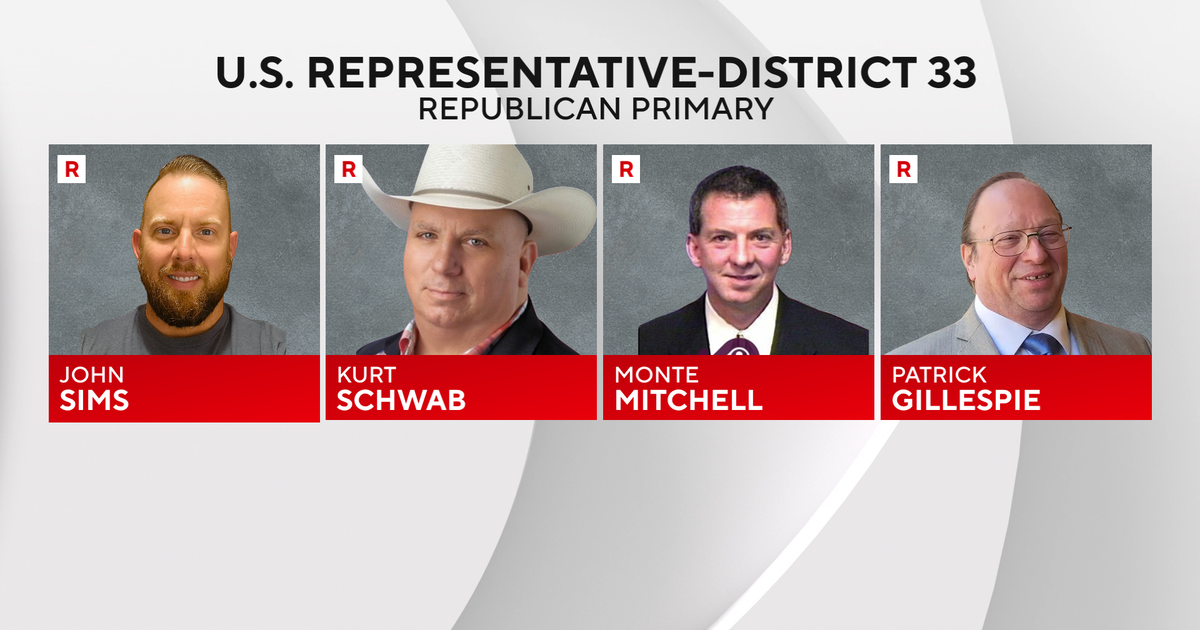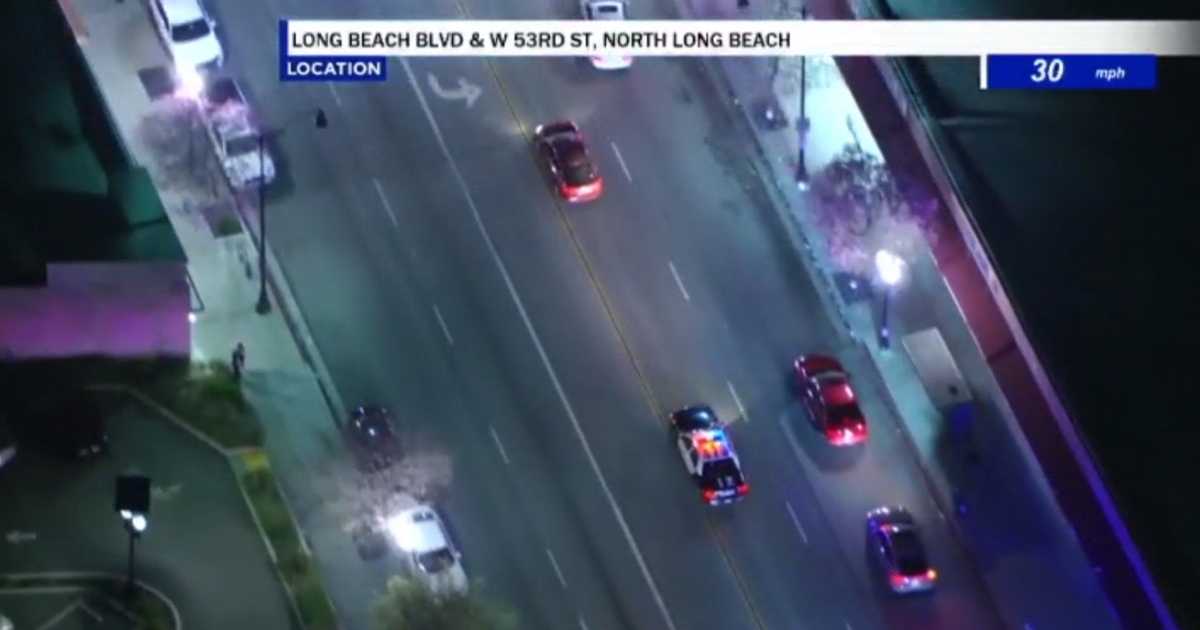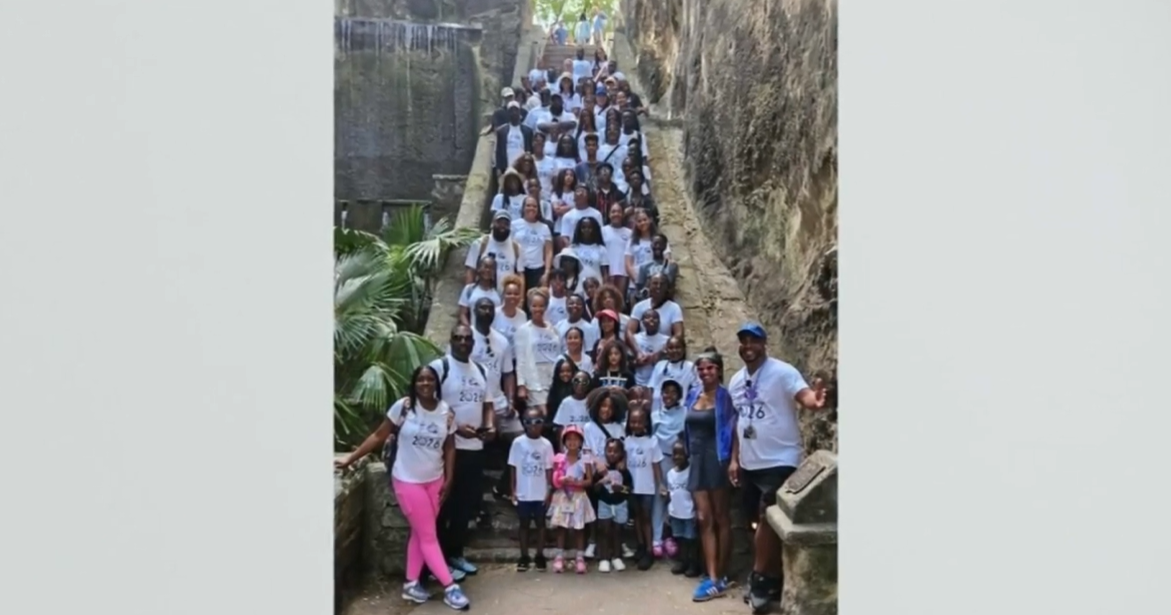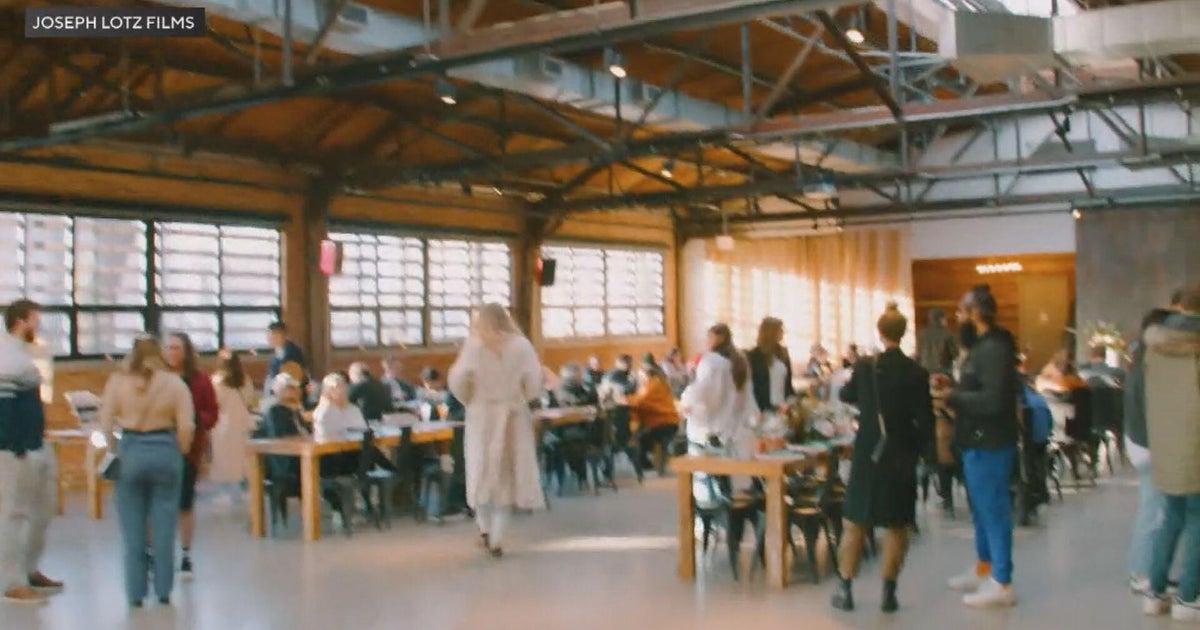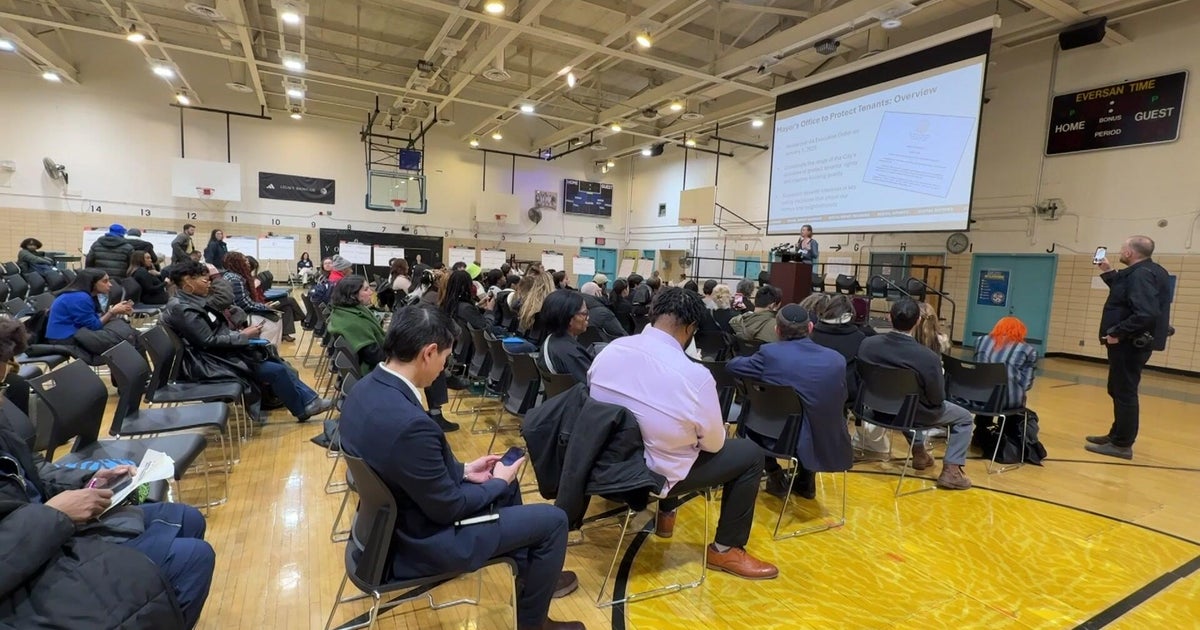Excitement builds ahead of highly anticipated total solar eclipse. Here's how you can watch it in LA
Excitement is building ahead of Monday's highly anticipated solar eclipse.
The total solar eclipse, dubbed the Great American Eclipse, will be visible between 10 a.m. to noon, crossing North America from Texas to Maine, passing over Mexico, and Canada.
For 32 million Americans in 15 states in the path of totality, the sky will momentarily darken. The eclipse is the first solar eclipse to pass through North America in 7 years.
To help facilitate the momentous event, Delta has rolled out two path-of-totality flights that are already sold-out designed for those seeking a closer look.
One flight departs from Austin to Detroit and the other from Dallas-Fort Worth to Detroit. Once those flights reach Missouri, passengers will get a special view of the eclipse, but are required to wear specialized glasses.
NASA says the next total solar eclipse that can be seen from the contiguous U.S. will occur on August 23, 2044.
Here's how you can watch across Los Angeles County
- The Griffith Observatory is hosting a virtual and live online broadcast from Belton, Texas starting at 10 a.m. and lasting until 1 p.m. on Monday. The maximum partial eclipse from Los Angeles will be visible at 11:12 a.m.
- Cal State Long Beach's Department of Physics and Astronomy is also hosting a live viewing event beginning at 10 a.m. on the campus' upper quad. Eclipse safety glasses and even access to solar telescopes will be available.
- Pierce College in Woodland Hills will welcome the public for a free outdoor look at the eclipse beginning at 10 a.m. The event lasts until 12:30 p.m. and can be found on the second floor balcony of the Center for the Sciences. More information is available here.
- In Pasadena, people can visit the California Institute of Technology's Cahill Center for Astronomy and Astrophysics where people can access solar telescopes, eclipse glasses and speak with professional astronomers who are on hand for public questions. Learn more here.
- The Glendale Library is also holding a viewing party on Monday for all ages with no registration required. There will be activities and glasses available upon arrival. More information available here.
- In Venice, Friends of Venice Library is hosting their own eclipse viewing party. Glasses will be distributed to attendees and even some "celestial snacks." The event starts at 10 a.m. and ends at 12:30 p.m. Learn more here.
- Placerita Canyon State Park in the San Gabriel Mountains will also have a viewing party, but eclipse glasses will not be provided.
